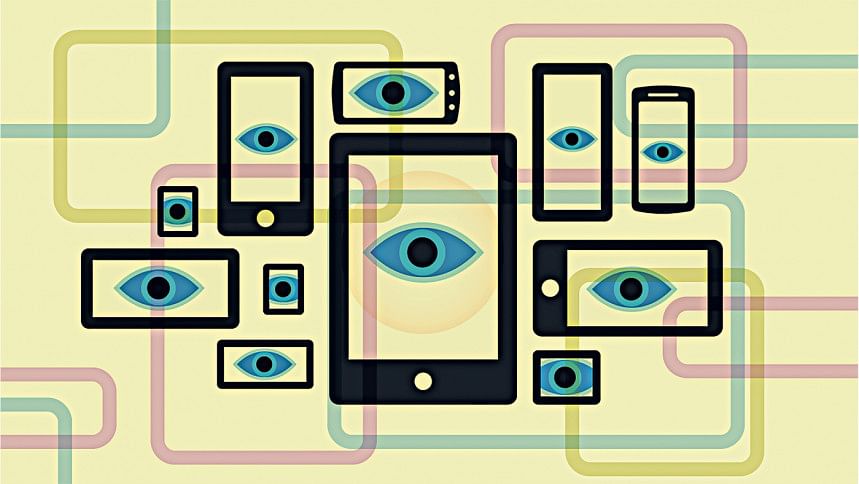Privacy concerns over phone searches

During the quota reform movement in July and early August, reports emerged of police conducting unjustified phone searches and making arrests. In addition to targeting protesters, students and pedestrians were also subjected to such searches and interrogations at numerous checkpoints. Authorities invariably defended these actions as necessary for maintaining national security and public order. However, such measures, lacking appropriate legal justification, raise serious concerns about invasions of right to privacy and potential abuses of power. Indeed, when the law enforcers resort to such searches, it trickles down to the private actors (e.g., various political activists) as well, creating a false sense of authority and justification in doing what is prohibited to quell the opposition.
The right to privacy is a universally recognised fundamental human right. Article 12 of the Universal Declaration of Human Rights (UDHR) asserts, "No one shall be subjected to arbitrary interference with his privacy, family, home, or correspondence, nor to attacks upon his honor and reputation. Everyone has the right to the protection of the law against such interference or attacks." Similarly, Article 17(1) of the International Covenant on Civil and Political Rights (ICCPR) states, "No one shall be subjected to arbitrary or unlawful interference with his privacy, family, home, or correspondence, nor to unlawful attacks on his honor or reputation."
Despite the need of upholding public order, fundamental human rights cannot be encroached upon. It is crucial to respect the right to privacy as guaranteed by national as well as national laws in order to shield people from capricious and invasive acts of the state.
In Bangladesh, the right to privacy is constitutionally protected under Article 43 of the Constitution of Bangladesh, which guarantees that every citizen has the right to the privacy of their correspondence and other means of communication. Furthermore, the otherwise infamous Cyber Security Act (CSA) 2023 allows a police officer of at least the rank of inspector to seize computers, networks, and data if there is suspicion of a crime under the CSA. The Information and Communication Technology Act, 2006 (ICTA), and the Bangladesh Telecommunication Regulatory Act, 2001 (BTRA), provide additional legal frameworks for data and communication inspections. The Bangladesh Police Act of 1861 and the Code of Criminal Procedure (CrPC) provide law enforcement with certain powers to maintain public order and investigate crimes. However, these laws require that searches and seizures be conducted based on reasonable suspicion and often necessitate a warrant issued by a competent authority.
In the case of Mrs. Nilufar Hossain v Bangladesh (2024) it was opined that, "...to have fundamental right to privacy, for example, is not just to have a claim against the State that it refrains from interfering with one's privacy interest, say through searches and seizures, but also an entitlement to positive state action directed towards the protection of one's privacy interests against the interference of third parties, namely through the law of defamation, data security legislation and so forth."
The Supreme Court of Bangladesh has also affirmed the right to privacy in various rulings. For instance, in State and Others v Oli and Others (2019), the Court held that the right to privacy extends to private communications over the phone, and phone companies must ensure the security and confidentiality of citizens' communications. In Aynunnahar Siddiqua and Others v Government of Bangladesh and others (2016), the Court further noted that the right to privacy is fundamental to the freedom of dissent and cautioned against unjust interference under the guise of surveillance.
Despite the need of upholding public order, fundamental human rights cannot be encroached upon. It is crucial to respect the right to privacy as guaranteed by national as well as national laws in order to shield people from capricious and invasive acts of the state.
The writer is LLM candidate, University of Dhaka.

 For all latest news, follow The Daily Star's Google News channel.
For all latest news, follow The Daily Star's Google News channel. 



Comments